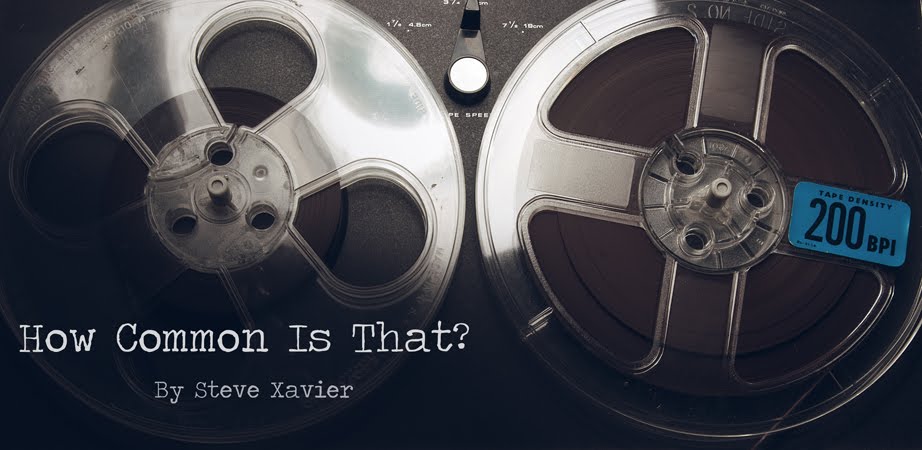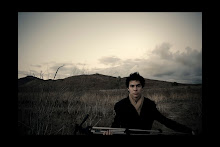How does this apply to the audio engineer? There are a few different aspects of audio engineering that we have to fully understand to become masters of audio. (Like Bob Katz.) What I'm saying is that the knowledge that audio engineers should have, more or less, is the understanding of how a sound is produced, transduced, manipulated and arranged from beginning to end. This attention to detail separates the bed-room enthusiasts from the Jedi's of recording. Jedi's, yes. More like bed-room padawans than enthusiasts.
First off, the reason you wanted to become an audio engineer, hopefully, is music. (I know I'm forgetting about all you Post-Production people right now, so imagine that I'm talking about sound in general.) Now, music in and of itself is a vast and extensive subject that requires years of study to start to comprehend it. Your understanding of music will help you to mix a band more logically according to the arrangement and genre. You are the invisible conductor, so if you don't know anything about the music that you are mixing, how will it turn out sounding good? The music is the first thing that you have to focus on, and the most important thing! Sufjan Stevens has recorded several albums with techniques scoffed at by the religious right of the recording industry, but these techniques promoted his music and his over all sound in an impressive way. First, music, then engineering.
The next aspect that I want to look at is the sound itself, or the acoustics of audio. Each one of these topics could be a blog themselves, but I'll save expanding upon them too much for a later day. I've got a deadline with this one. As an engineer you absolutely need to understand the sound that is produced by each instrument. Several times I've seen people make their microphone lists without ever hearing the instrument, then when they go to record, they set up the mics on the instruments without hearing them played! This happens, and it's downright stupid! Understand where different tones are produced on a guitar, and how to smooth out an amplifiers punch or emphasize it. Know how to affect certain things, like drums, and why the pitch bends up or down after the tom has been struck. Understand how sound travels, how it bounces, and be able to manipulate it's path with different surfaces such as baffles or gobos. When you understand how instruments are creating the sound, and how that sound is reacting within the room, only then can you decide which microphone would best suit the instruments musical needs.
Which brings me to microphones, gear, and signal flow in general. This is something that you can understand on two levels: 1. How it will affect the sound, and 2. Why it will affect the sound. The first is on a tonal level. Neumann microphones will give you tons of presence, tube gear will give you a "warmer" sound. The second level is more of an electronic understanding. Tube gear will actually roll off transients because of the nature of the electrons passing through the tube, therefore de-emphasizing a portion of the signal with the most high-end information, giving you more low end which to your ear will sound "warmer". Just a side note, this is why solid-state sounds harsh, but in reality, solid-state is a truer representation of the input sound. Anyways, understanding your gear is a very important thing. As soon as you get a new piece of equipment, test it with all you have, to it's limits. Know how the gear will handle in every situation.
There is still so much more in audio that can be learned, I haven't even started digital, but because of time, and for the sake of this post getting too lengthy, I'll stop there. What you need to do, if you truly are an audio engineer, is understand every aspect of audio, not just beat-making. I guess my point is this; you have to get in the water completely before you learn to swim.
"Wait a minute," you say, "what makes YOU an engineer?"
Um, obviously the legit cardigan.
In the words of my Advanced Recording and Production instructor George Borden, "Feel it."



Hi Steve! I'm really touched how you have my blog as your Safari homepage! And that you were inspired by my Knowledge is Power post! You're totally right, of course, that this concept applies to all mediums. You have to "feel" the music in order to mix or arrange or compose or conduct it. And of course, you have to begin by understanding and studying music. Period. Your blog is sweet! Thanks for the kudos.
ReplyDeleteThanks Melissa! I was surprised to see your name pop up in my email! I've been continually inspired by your blog for several months now, not just because of your photography, but also because of how most of what you say translates to several things in general. It's surprising how many things in the music industry also hold true in the fashion industry.
ReplyDeleteKeep up the good work, I'm sure there are several people like myself who aren't in direct contact but are still greatly influenced by what you do and say.